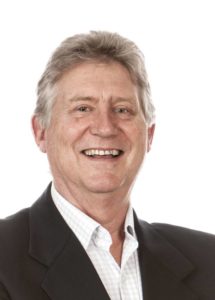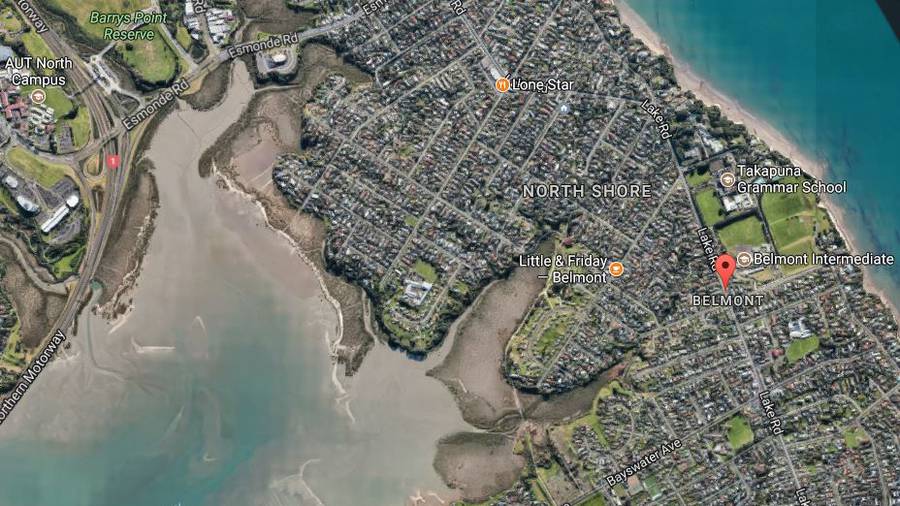Auckland residents prepared to pay to fix congested road
Some local residents caught up in one the most dreaded roads in Auckland – Lake Rd on the North Shore – are prepared to pay a targeted rate for a $70 million-plus upgrade.
A survey by the Automobile Association of 800 Devonport peninsula members found half favour the most expensive of three options to upgrade the heavily congested arterial route in and out of Devonport, home to the Royal New Zealand Navy.
The survey followed consultation by Auckland Transport on three options to improve Lake Rd.
The first two options, costing between $10m and $40m, would provide the fewest benefits and take five to 10 years to build. The third option, costing $70m-plus, would involve buying properties, road widening, major disruption and take more than 10 years to build.
It would, however, provide “a greater scale and range of benefits”.
AA senior infrastructure adviser Vanessa Wills said the survey results highlight the level of frustration the road causes for local residents, saying it is clear from the feedback that the status quo will not be tolerated for much longer.
Earlier this year, the Herald revealed a quarter of the city’s busiest roads, including Lake Rd, are already congested during the morning and evening peaks, up from 18 per cent three years ago.
On weekdays, the intersection of Lake Rd and Esmonde Rd is a choke point for 32,000 vehicles. Lake Rd is regularly clogged up at weekends.
“Locals see this as a clear opportunity to bite the bullet; fix it once and fix it properly. They don’t want to see “half-pie tinkering” only to have more road works again in 10 years’ time – they want significant and substantial investment right now, and if it means paying for the high-level option, then that’s something they’re willing to look into,” Wills said.
Of the 49.3 per cent of respondents who opted for the $70m option, half of those said they were prepared to pay a targeted rate. About two-thirds of those said they would be willing to pay a targeted rate of between $50 and $200 a year.
A total of 29.8 per cent of respondents favoured the medium-level investment and 8 per cent the $10m investment. The remaining 12.9 per cent favoured none of the options.
“People are willing to pay something extra, but they want to see it happening faster as a result. AA members want to see benefits within the next five years – not 10,” Wills said.

Devonport-Takapuna Local Board chairman Grant Gillon said Auckland Transport was finalising a business case for the options. If there was a funding shortfall then the board was willing to consult local residents on a targeted rate, he said.
The Local Board favour progressing the middle $40m option to see what it looks like, including options for a high occupancy vehicle and bus lane and provision for cycling, Gillon said.
He said there could be some resistance to a targeted rate if the council introduces a regional petrol tax for projects outside the North Shore.
“Our residents will be charged that (the petrol tax) and then on top of that they are going to be charged a targeted rate,” Gillon said.
Wills said targeted rates are firmly on the agenda and the council should indicate the role they could play in funding infrastructure projects like Lake Rd.
An Auckland Transport spokesman said on the basis of public feedback and recognising that a major road widening project is unlikely to be cost-effective, its preferred option is the medium investment approach, which is subject to a detailed business case.
“AT intends to develop the emerging preffered option further to secure necessary funding and identify the ideal delivery proggramme.
“The successul completion of this next phase is a key step in identifying the exact level of investment, optimum programme and any supporting requirements or dependancies to enable delivery,” the spokesman said.
He said if a viable project is developed, construction is at least two to three years away.
North Shore councillor Chris Darby, a Stanley Bay resident, said earlier this year that Lake Rd was the number one issue locally.
The challenge, he said, was to increase capacity from the average occupancy of 1.2 passengers per vehicle in peak hours.
Darby and the other North Shore councillor, Richard Hills, are pushing for bus priority and high-occupancy vehicles, bringing forward a $6m upgrade of the Bayswater ferry terminal and developing travel plans with the navy, Takapuna Grammar and Belmont Intermediate schools.
“We can’t have the unrealistic option of widening the road. I don’t want to see properties sliced up,” Hills said.

